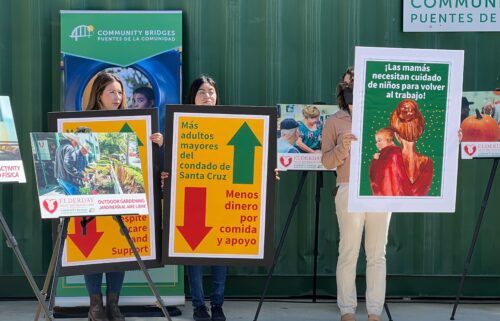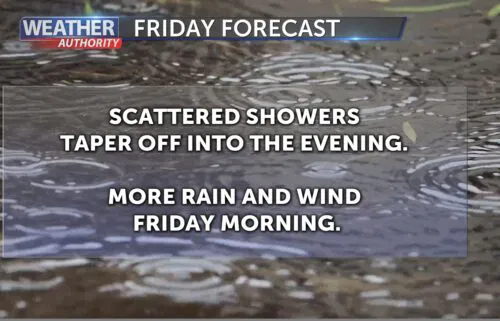Zelensky slams ‘beasts’ who purportedly beheaded Ukrainian soldiers after video emerges
By Vasco Cotovio, Andrew Carey, Josh Pennington and Yulia Kesaieva, CNN
Ukrainian President Volodymyr Zelensky on Wednesday condemned as “beasts” those who purportedly beheaded Ukrainian soldiers shown in two videos that emerged on social media in the past week.
The videos appear to be of separate events — one of them may have been filmed very recently, while the other, from the amount of foliage seen on the ground, looks like it was filmed during the summer.
The first video, which was posted to a pro-Russian social media channel on April 8, was purportedly filmed by Russian mercenaries from the Wagner group and appears to show the beheaded corpses of two Ukrainian soldiers lying on the ground next to a destroyed military vehicle.
In the video, a voice can be heard, behind the camera, the sound seemingly distorted to prevent the speaker’s identification.
“(The armored vehicle) got f**ked by a mine,” the voice, speaking Russian, says.
Apparently referring to the bodies on the ground, the voice, laughing, continues, “They killed them. Someone came up to them. They came up to them and cut their heads off.”
The dead soldiers also appear to have had their hands cut off.
Russian social media accounts say the video was shot near Bakhmut in eastern Ukraine, which has been the scene of the war’s fiercest fighting for many months, with Wagner fighters heavily involved. CNN is unable to independently confirm the video’s location.
The second video, which was posted on Twitter and is heavily blurred, looks to have been filmed during the summer because of the amount of plant life on the ground. It purports to show a Russian fighter using a knife to cut off the head of a Ukrainian soldier. A voice at the beginning of the video suggests the victim might have still been alive when the attack began.
Zelensky vowed those behind the purported atrocities would be held accountable. “There is something that no one in the world can ignore: how easily these beasts kill,” he said in a video message.
“We are not going to forget anything. Neither are we going to forgive the murderers. There will be legal responsibility for everything. The defeat of terror is necessary,” he said.
Kremlin spokesperson Dmitry Peskov said Wednesday the video was “terrible” but “first of all, we need to verify the authenticity” of the footage.
In his regular call with journalist, Peskov said: “Of course, these are terrible shots. Then it may be a reason to check whether this is true or not, whether this took place and, if so, where and from which side.”
On Monday, the Institute for the Study of War (ISW) said that Wagner was “reportedly continuing to commit war crimes by beheading Ukrainian servicemen in Bakhmut,” referencing a photo shared on pro-Russian social media sites showing what appeared to be a severed head, which they claimed belonged to a Ukrainian soldier, mounted on a spike.
The ISW has reported similar incidents in Popasna, in the Luhansk region, where Wagner troops were also operating earlier in the war.
Some pro-Russian social media accounts have suggested Ukrainian forces were responsible for the beheadings in an effort to conceal identification. This echoes a similar claim made by Wagner boss Yevgeny Prigozhin in January after his fighters apparently found bodies with severed hands and heads near Bakhmut.
Dariia Zarivna, adviser to the Head of the Office of the President of Ukraine, said Wednesday the videos are part of a psychological operation “aimed at intimidation.”
“It completely dehumanizes and demonstrates the essence of a terrorist country,” she said of the videos.
“But it is important to understand the purpose. This is an PSYOP [psychological operation] aimed at intimidation. The target audience is not only Ukraine, but also Western societies,” she reasoned.
“It doesn’t work on us, though. The Russians are afraid of this, but not us,” she added.
The-CNN-Wire
™ & © 2023 Cable News Network, Inc., a Warner Bros. Discovery Company. All rights reserved.
CNN’s Anna Chernova contributed to this report.



